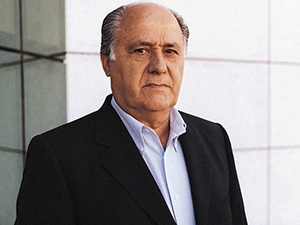Amancio Ortega, founder and chairman of the Inditex fashion group, recently surpassed Bill Gates in wealthfor the second time.

From humble beginnings, Amancio Ortega—Spanish business magnate, founder and chairman of the Inditex fashion group, best known for its chain of Zara retail stores—recently surpassed Bill Gates’s fortune for the second time.
Ortega’s wealth owes much to his visionary strategy: turning products around really quickly and selling as much product at full price as possible. “Traditional retailers buy products now for sale in spring and summer of next year,” says Tom Gadsby, retail analyst at investment bank Liberum. “They buy enormous debt with long lead times from manufacturers in the Far East. They buy products in quite cheaply, but they are taking a punt now on what people might want to buy in 12 months time, so there is a risk attached to that.”
Markdowns of 40% are the norm for conventional fashion retailers, where products get sold at a discount because buyers’ predictions were wrong. Inditex buys on three- to five-week lead times, and in some cases just 10 days. Feedback from store managers tells the company exactly what people are buying and not buying. This gives executives a clearer sense of what to deliver.
“It gives them a much better chance of selling at full price, and in fact their markdown rate is nearer to 15%. They may pay more for their product, but they are buying in a lot less debt,” Gadsby says. “The bought-in gross margin is lower, but the achieve margin is higher, and profit after expenses is pretty much the highest in the industry—plus it is stable.”
From a consumer point of view, if you see something you like in an Inditex store, you are conditioned to buy it straightaway because it probably won’t be there next week.
Only more recent online fashion retailers, such as ASOS and Boohoo, can compete with Inditex on the short lead times. “The others are trying to predict, not provide what the demand is now, but they couldn’t change their business at this stage,” remarks Gadsby. “Marks & Spencer simply couldn’t change—it would be like starting again.”



